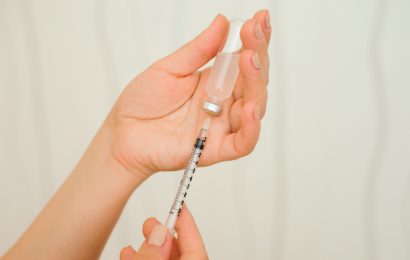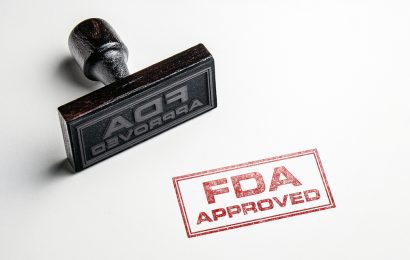On March 25, 2015, the U.S. Food and Drug Administration (FDA) expanded the approved use of eye drug Eylea (aflibercept) to include treatment of diabetic retinopathy in people who have diabetic macular edema.
More than 5.3 million adults in the United States are estimated to have diabetic retinopathy, which occurs when diabetes damages tiny blood vessels in the eye’s retina (the light-sensitive tissue at the back of the eye). In diabetic macular edema, or DME, fluid leaks into an area in the middle of the retina known as the macula, which is responsible for providing crisp vision and fine detail. The macula swells and vision blurs. DME affects approximately 750,000 Americans and about 10% of people who have diabetic retinopathy.
Eylea, which is also approved to treat wet age-related macular degeneration, macular edema following retinal vein occlusion, and diabetic macular edema, is administered via injection into the eye — monthly for the first five months and then once every other month — by a health-care professional.
The safety and effectiveness of Eylea for treating diabetic retinopathy with DME was established through two clinical trials involving 679 people who were assigned to receive either Eylea or laser-based treatments. The data showed that those who received treatment with Eylea had significant improvement in the severity of their diabetic retinopathy compared to those who received macular laser photocoagulation.
According to Edward Cox, MD, MPH, from the FDA’s Center for Drug Evaluation and Research, “Today’s approval gives patients with diabetic retinopathy and diabetic macular edema another therapy to treat this vision-impairing complication.”
The most common side effects of Eylea include bleeding of the conjunctiva (the tissue lining the inside of the eyelids and the white part of the eye), eye pain, cataracts, floaters (small spots in vision), increased intraocular pressure (pressure inside the eye), and vitreous detachment (separation of the interior jelly of the eye from the retina). Serious side effects include detached retina and eye infection.
For more information about Eylea, see the press releases on the FDA or Regeneron websites or the Eyelea website.





